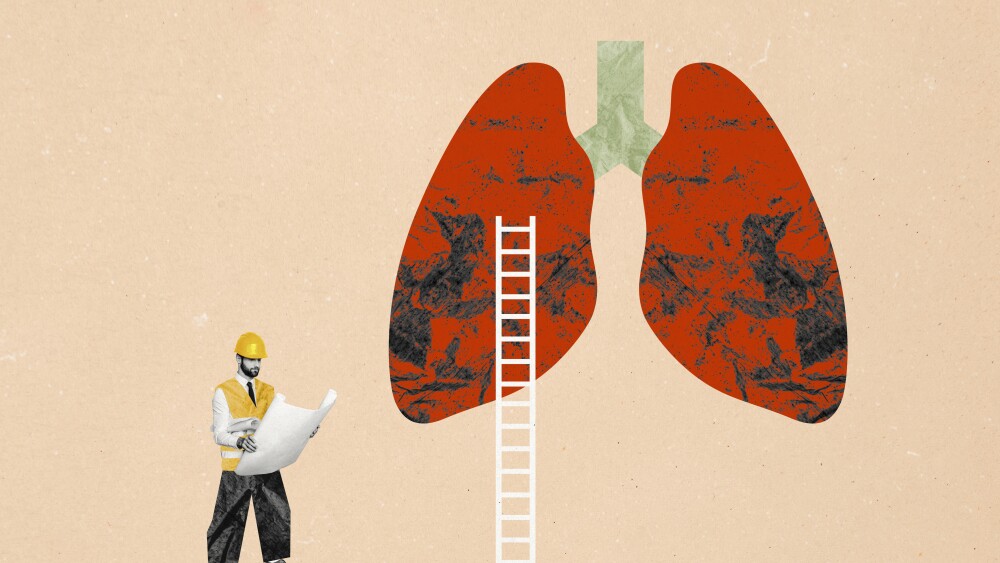According to analysts, the new data could present a path to accelerated approval for ifinatamab deruxtecan, a product of Merck and Daiichi Sankyo’s troubled ADC partnership.
Nearly half of patients dosed with Merck and Daiichi Sankyo’s ifinatamab deruxtecan responded to the treatment, helping the partners mount a comeback for their antibody-drug conjugate alliance.
Results from the Phase II IDeate-Lung01 study, presented Sunday at the 2025 World Conference on Lung Cancer, showed that the drug, also known as I-DXd, resulted in a 48.2% confirmed objective response rate (ORR) in patients with extensive-stage small cell lung cancer. These data include three complete responses and 63 partial responses; 54 of the treated patients achieved stable disease.
Writing to investors on Sunday evening, Jefferies analysts called I-DXd’s performance “strong,” noting, however, that these latest data are “lower” than what Merck and Daiichi Sankyo had toplined at last year’s WCLC. At the time, the partners announced a 54.8% ORR.
According to Jeffries, the difference in the two figures came from Sunday’s data, including patients receiving I-DXd in a third-line setting, which could potentially have “diluted” the therapy’s efficacy figures. Focusing on a subset of participants who received I-DXd in the second-line setting, ORR was 56.3%, which Jefferies said was “impressive.”
Given these findings, as well as the breakthrough therapy designation the drug received from the FDA last month, Jefferies believes that an accelerated approval for I-DXd in this indication could be a “distinct possibility.” The FDA has previously demonstrated regulatory flexibility for small-cell lung cancer, with accelerated approvals for Jazz Pharmaceuticals’ Zepzelca and Amgen’s Imdelltra, both drugs working their way through the accelerated pathway, based on pivotal Phase II data.
Sunday’s pivotal readout represents a much-needed win for Merck and Daiichi Sankyo’s antibody-drug conjugate (ADC) collaboration. The companies linked up in October 2023, when Merck paid $4 billion upfront for access to three investigational therapies for solid tumors. All told, Merck could be on the hook for $22 billion.
In June 2024, however, one of the assets under this partnership, patritumab deruxtecan, failed to win the FDA’s approval for locally advanced or metastatic non-small cell lung cancer. Manufacturing problems stymied the application, the companies announced at the time, insisting that there had been no problems with the molecule’s safety or efficacy.
Then, in May this year, Merck and Daiichi Sankyo decided to pull that application completely, noting that the ADC did not show significant overall survival improvements in a Phase III study. It is unclear if they plan to resubmit an approval application for this asset.






